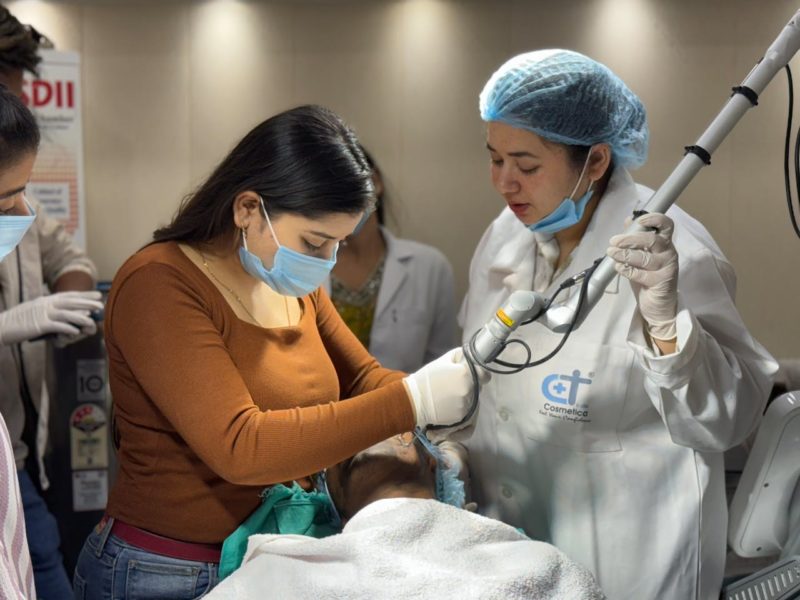From Theory to Chair: The Three Phases of Cosmetology Training

Cosmetology is more than just an art—it’s a structured discipline that blends theory, technique, and real-world experience. Cosmetology training typically unfolds in three key phases for students pursuing a career in beauty and personal care: classroom instruction, hands-on practice, and client-facing application. Each phase builds essential skills while reinforcing safety, hygiene, and professional standards.
A well-rounded education provides the foundation needed for long-term success in the industry. During their journey, students often begin in a cosmetology school, where they gain knowledge of anatomy, product chemistry, and sanitation practices before progressing to guided practice and supervised client work. This step-by-step approach ensures that graduates are technically proficient and prepared for the responsibilities of working confidently in real salon environments.
The Foundation: Theoretical Education
The journey of every cosmetology student begins in the classroom, where they study the scientific principles underlying beauty. This foundational education covers essential topics such as anatomy, physiology, infection control, and the chemistry of hair, skin, and nails. Understanding these subjects is crucial for safe and proficient practice, as it enables students to grasp concepts like hair growth cycles and nail structure, which are vital for executing precise treatments.
Moreover, knowing how chemicals interact during color processing is critical for accurate results. This theoretical background fosters skilled, deliberate work and illustrates the intersection of science and creativity in cosmetology. As students advance through their education, they gain hands-on experience, develop critical thinking skills essential for salon problem-solving, and enhance health and hygiene standards, positioning them as trusted experts in the beauty industry.
Bridging Knowledge and Practice: Hands-On Training
After establishing a strong theoretical foundation, students transition to hands-on practice, moving beyond textbooks to apply real techniques on mannequins and live models, all under the careful guidance of experienced instructors. This shift allows them to refine essential skills—such as precision cutting, creative coloring, intricate chemical treatments, rejuvenating facials, and effective waxing—through a process of repetitive practice complemented by constructive feedback. Each session serves as a valuable learning opportunity where students can embrace both their mistakes and successes.
As they progress, precision and finesse become second nature. Students develop a keen focus on critical details, including scissor angles for seamless cuts, brush strokes for flawless application, thoughtful product choices tailored to individual client needs, and efficient service speed to enhance client satisfaction. This immersive practical experience not only cultivates muscle memory but also instills creative confidence and adaptability when working with a diverse range of hair types, skin tones, and client expectations—qualities that are vital for professional success in the beauty industry.
Additionally, this hands-on training encourages students to troubleshoot challenges and improvise solutions on the spot, fostering a sense of self-reliance that is crucial in a fast-paced salon environment. The culmination of these experiences equips students with the skills and mindset needed to thrive in their careers, ensuring they are well-prepared to meet the demands of their future clients.
Integrating Business Acumen Into Cosmetology Training
The beauty industry requires a strong foundation in business acumen, not just technical skills. Leading educational programs incorporate business-oriented topics into their curricula, covering marketing strategies, client retention techniques, financial management, legal issues, and customer service. Students learn to cultivate personal brands, manage daily operations efficiently, and balance creative endeavors with professionalism. This holistic knowledge equips cosmetologists to adapt to industry shifts and trends while remaining resilient against challenges like economic downturns. Graduates with a mastery of the beauty industry’s artistic and business aspects are better positioned to navigate obstacles and seize opportunities for growth and innovation. This holistic knowledge equips cosmetologists to thrive in their careers.
Conclusion
In short, a comprehensive cosmetology training blends science, skill, and strategy to prepare students for lasting success. By mastering theory, practicing techniques, and developing business savvy, aspiring professionals emerge not only as skilled artists but also as confident, adaptable experts ready to lead in the ever-evolving beauty industry.
Would you like to receive similar articles by email?





